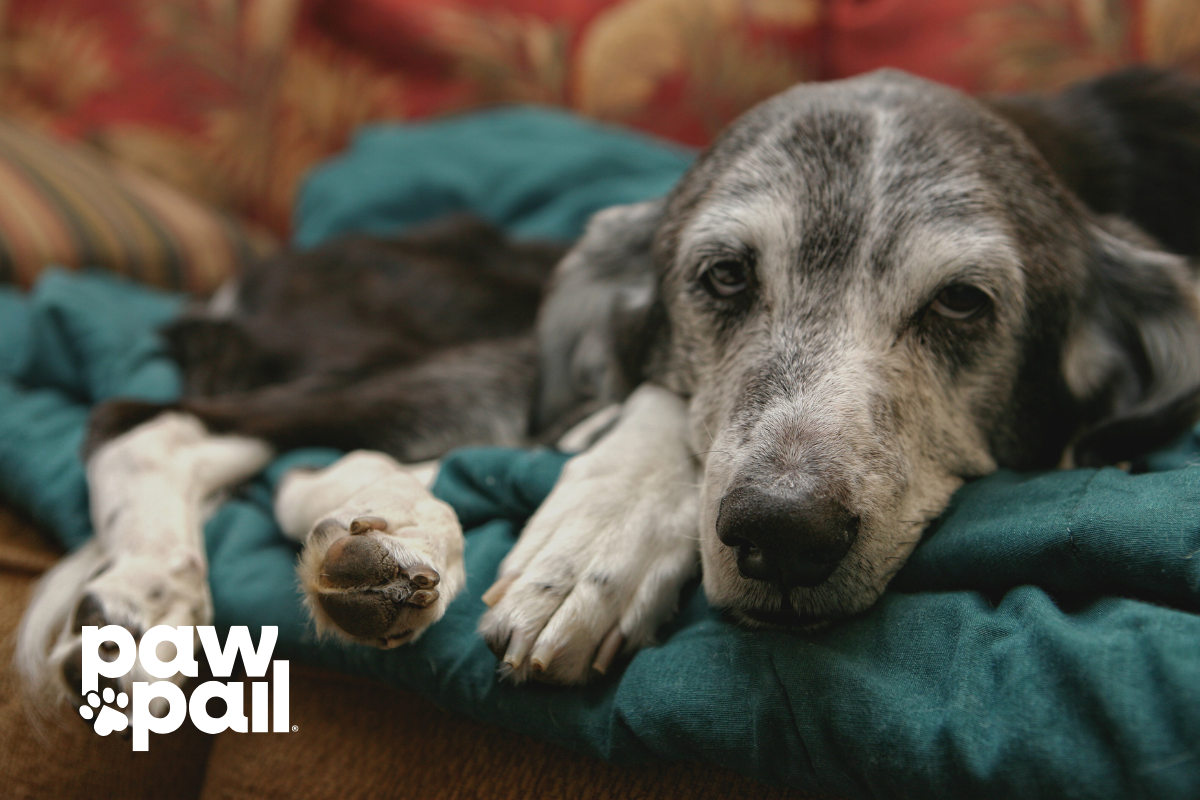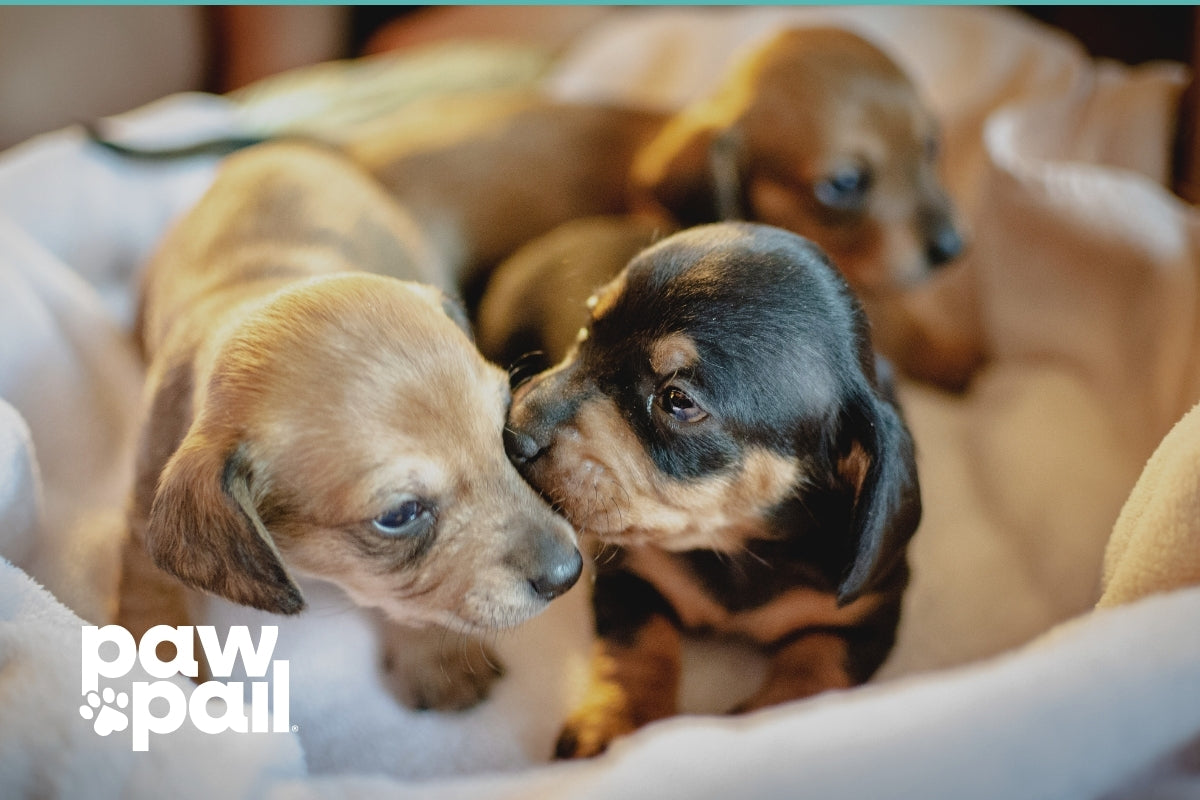Dealing with a puppy's diarrhea can be an incredibly stressful and concerning experience. While a bout of loose stool can sometimes be a minor and temporary issue, pet parents must understand when to provide at-home care and, more importantly, when to seek immediate veterinary attention.
When to Contact a Veterinarian Immediately
A puppy's small size and underdeveloped immune system make them highly susceptible to dehydration and other complications associated with diarrhea. A simple bout of an upset stomach can escalate quickly, so it is essential to recognize the warning signs that require professional medical attention.
-
Puppy is very young (under 4–6 months of age). Younger puppies have less fluid reserve, making dehydration life-threatening very quickly.
-
Lethargy, weakness, or general signs of being unwell. This may point to a systemic illness, not just a simple stomach issue.
-
Painful or bloated abdomen. This could indicate a blockage or another dangerous condition.
-
Refusal to eat or drink combined with diarrhea. This signals the body is not coping, and fluid loss is accelerating.
-
Vomiting along with diarrhea. The risk of extreme fluid loss and severe dehydration increases dramatically in this case.
-
Presence of fever. A fever is often linked to an infection that requires prompt medical attention.
-
Stool with a large amount of blood (bright red or black/tarry) or mucus. This may be a sign of serious illnesses such as parvovirus.
-
Diarrhea lasting more than 24–48 hours, even if the puppy seems otherwise okay. Prolonged diarrhea always warrants a vet check.
Never give human medications such as Imodium or Pepto-Bismol without a veterinarian's instructions. These drugs can be harmful or toxic to puppies.
Effective At-Home Care for Mild Diarrhea
If your puppy is otherwise acting normally, still energetic, playful, and has a healthy appetite, and your vet has advised you that at-home care is appropriate, you can follow these steps to help your furry friend feel better.
Focus on Hydration
Diarrhea is a leading cause of dehydration in puppies. Ensuring your puppy has constant access to fresh, clean water is the most critical step. You can also offer small amounts of unseasoned rice water, the cloudy water left after boiling white rice. The starches in the rice water can help bind the stool, and the liquid itself will help replenish lost fluids and electrolytes.
Introduce a Bland Diet
Temporarily switching your puppy to a bland diet is essential to give their sensitive digestive system a much-needed break. A balanced, bland diet should be a 2:1 ratio of lean protein to carbohydrates. Lean protein options include plain, boiled chicken breast (skinless and boneless) or lean ground turkey or beef (boiled to remove excess fat). As for carbohydrates, you can choose from plain, cooked white rice or boiled potatoes without the skin.
Feed your puppy small, frequent meals throughout the day rather than a large amount at once. This approach is easier on their digestive tract and helps prevent a new round of upset stomach.
Utilize Fiber and Probiotics
A small amount of 100% pure canned pumpkin puree (not pumpkin pie filling, which contains sugar and spices) is an excellent source of soluble fiber. This fiber absorbs water in the digestive tract, helping to firm up loose stool. A general guideline is 1-3 tablespoons, depending on your puppy's size.
Consult with your vet about adding a canine-specific probiotic supplement to your puppy's diet. Probiotics can help restore the natural balance of beneficial bacteria in the gut, which is often disrupted by diarrhea.
Create a Comfortable Recovery Space
Puppies with diarrhea will have to go outside to relieve themselves much more frequently. Set up a comfortable, easily accessible resting area near the door to help with quick trips. Designating a spot on a tile or linoleum floor is also a good idea in case of accidents.
Monitor and Transition Back to Regular Food
Continue the bland diet for a couple of days, or until your puppy's stool begins to firm up. Once they are consistently producing solid waste, you can begin the slow transition back to their regular food. Start by mixing a small amount of their regular kibble with the bland diet, gradually increasing the ratio over several days until they are back to their normal diet.
Keeping Clean During Puppy Recovery with Paw Pail
Caring for a puppy with diarrhea requires diligent monitoring and frequent trips outside to ensure proper care. As their digestive system recovers, managing the associated mess is essential for a hygienic environment.
Make clean-up easier with Paw Pail, the innovative dog poop disposal system. Its odor-locking design helps contain smells and keeps your home fresh while you focus on getting your puppy back to their healthy, playful self. Remember, if your puppy's diarrhea doesn't improve or worsens, always consult your veterinarian for professional guidance.



